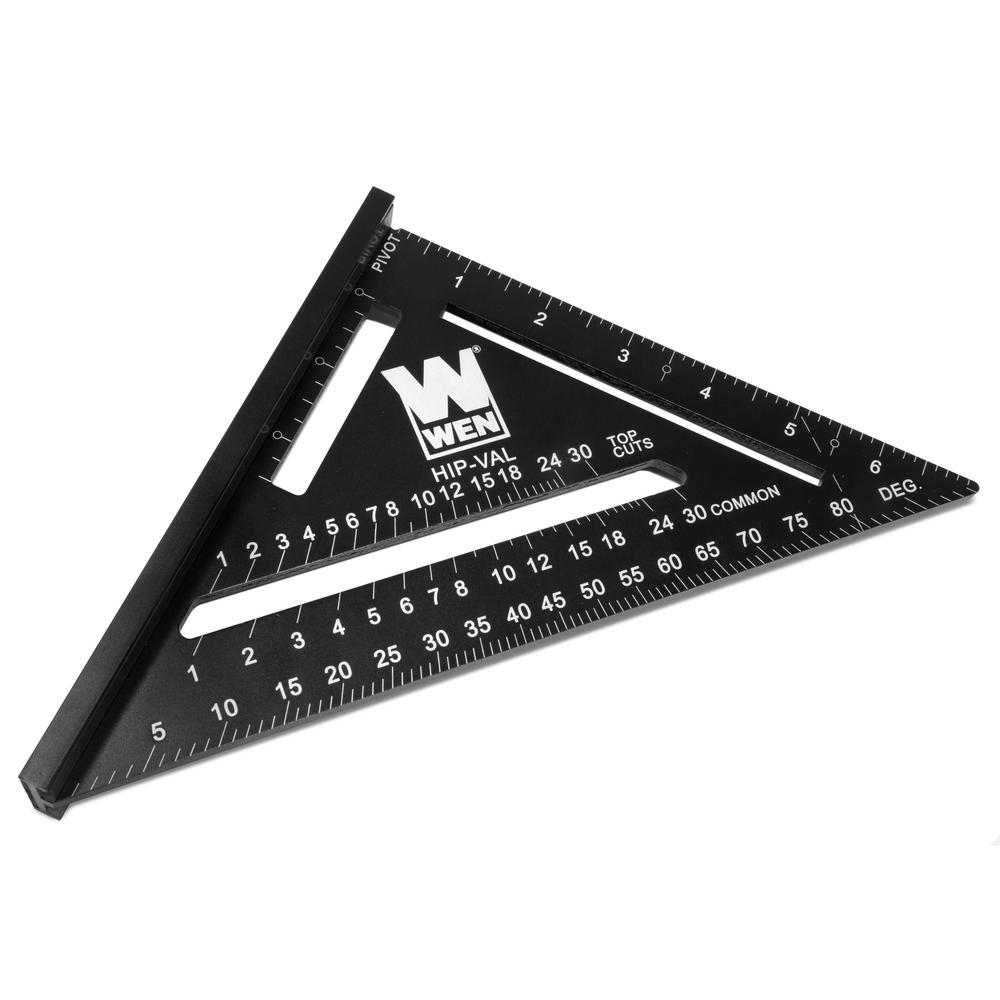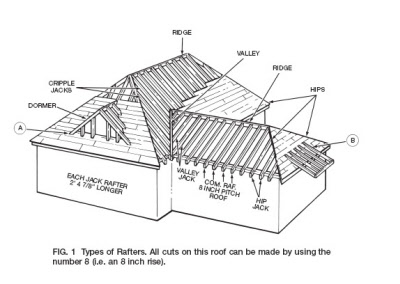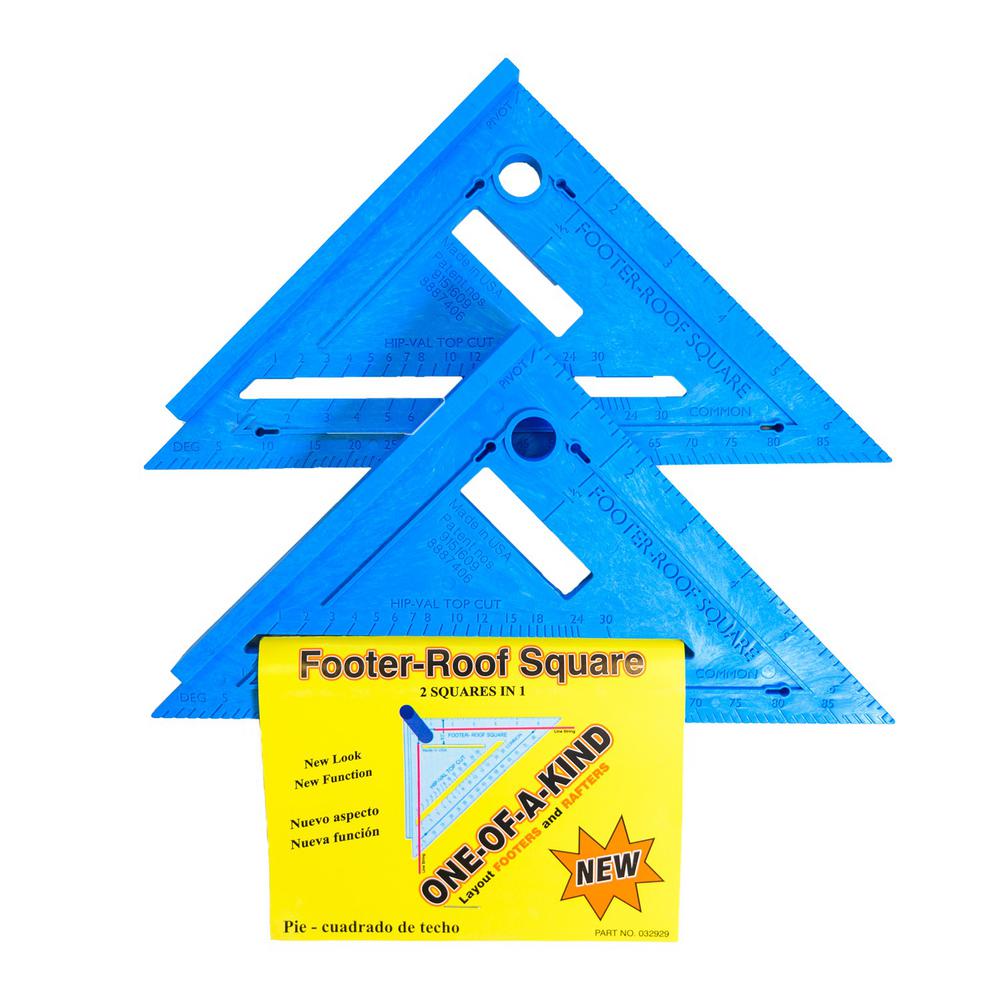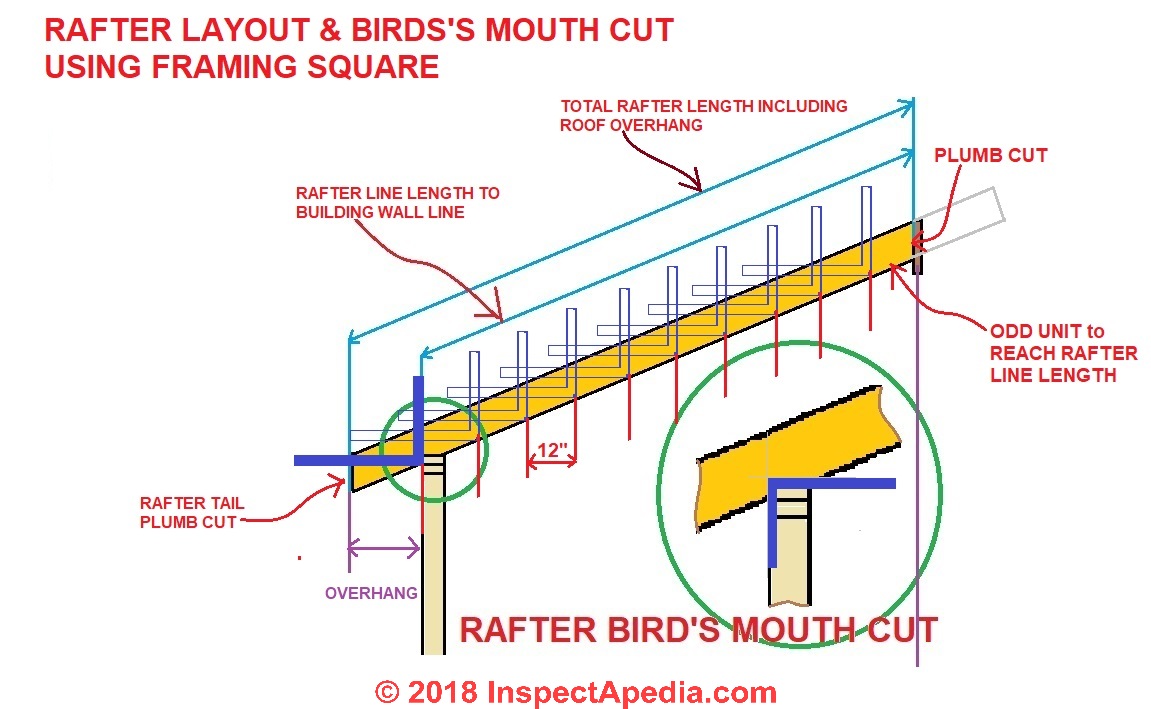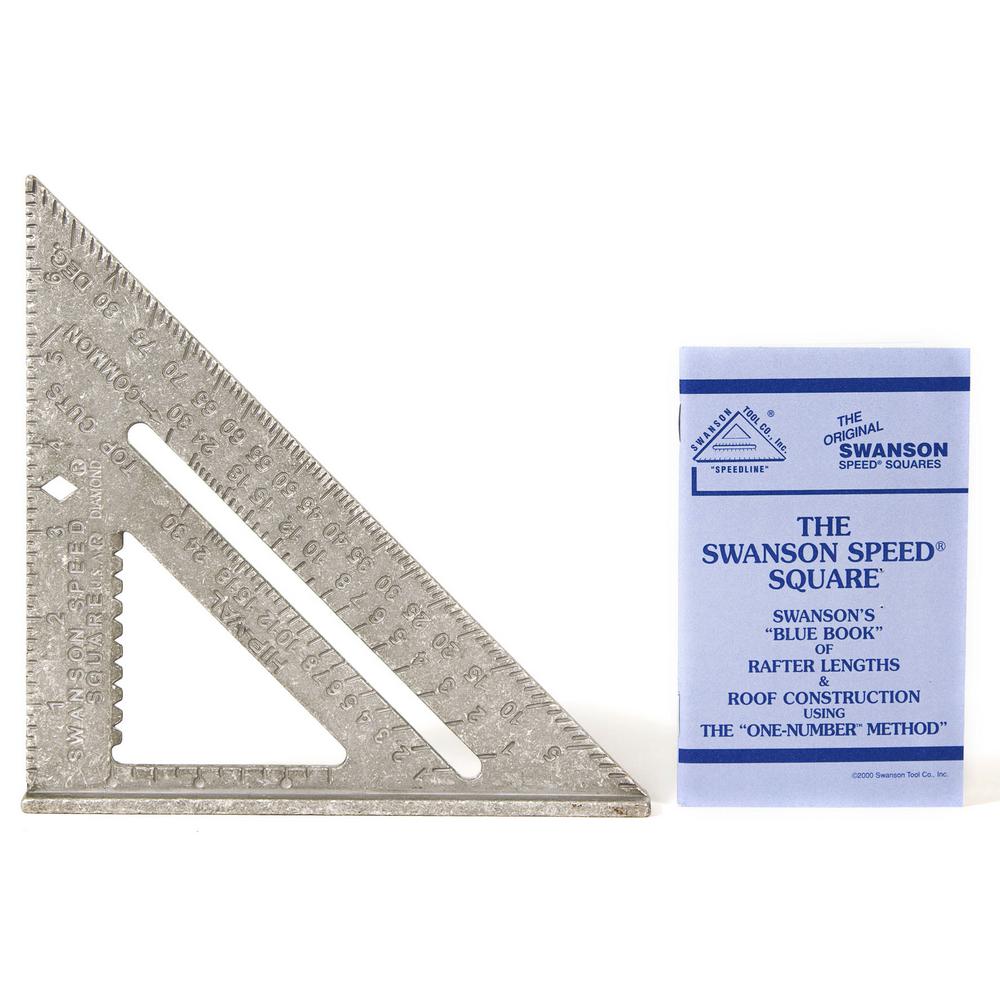To lay out a common rafter you need the pitch of the roof expressed in units of rise per foot of run in the gable roof example shown here a rafter with 6 in 12 pitch rises 6 in.
Rafter pro roof layout square.
For example the right triangle has by definition one ninety degree angle.
The roof rafters provide integral structural support to the roof.
Laying out hip valley and jack rafters takes experience and skill but if you re building a simple gable or shed roof all you need is the common rafter the basic building block of roof framing.
Place the square as before aligning the 6 mark of the tongue and 12 mark of the body with the top edge of the rafter material.
Use this calculator to find your rafter length.
If you re framing a gable roof on a new house or building a shed or even a doghouse with a gable roof you ll need to cut a number of roof rafters.
Here s how to make sense of all the numbers on your square and get the most out of this tool.
Align the back edge of the tongue with the 187 7 8 mark.
At the top of the rafter place the rafter square on the face of the rafter as in figure 7.
Learn the 1 rafter design that will guarantee your roof that is safe and strong for years to come.
See rafter run to outer wall calculator below.
Starting at the pivot point.
The rafter square or speed square does more than mark perpendicular lines.
Pivot the layout square so that the number 7 on the common scale lines up with the edge of the rafter.
The angle at which the.
Many conventional roofing products such as shingles mandate a slope no lower than 2 12.
For every foot.
More they usually claim that 4 12 is the lowest you can go without any special underlayment.
Common rafters are the most common type of rafter in construction.
This is our ultimate roof rafter guide for people designing and building an off grid cabin or tiny home.
Common rafter layout 1.
First you ll want to find the pitch of your rafters which will help you find the length of your rafters.
If the lumber is not straight always put the high or crown side up.
Today we are tackling a big beginner lesson which is common rafter layout and cutting.
Before you cut your boards you ll need to measure the width of your building and calculate the exact length of each rafter.
Allow for ridge thickness when determining rafter run to outer wall.
Half building width minus 1 2 ridge thickness.
Draw a line down the edge of the tongue as shown in illustration b of the roof layout.
